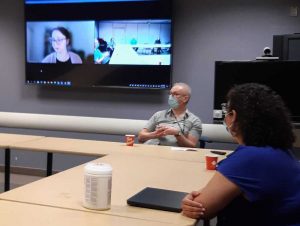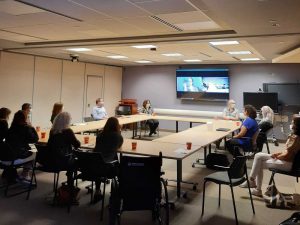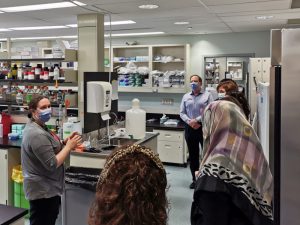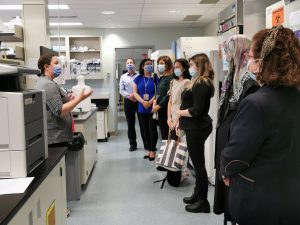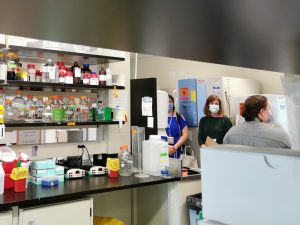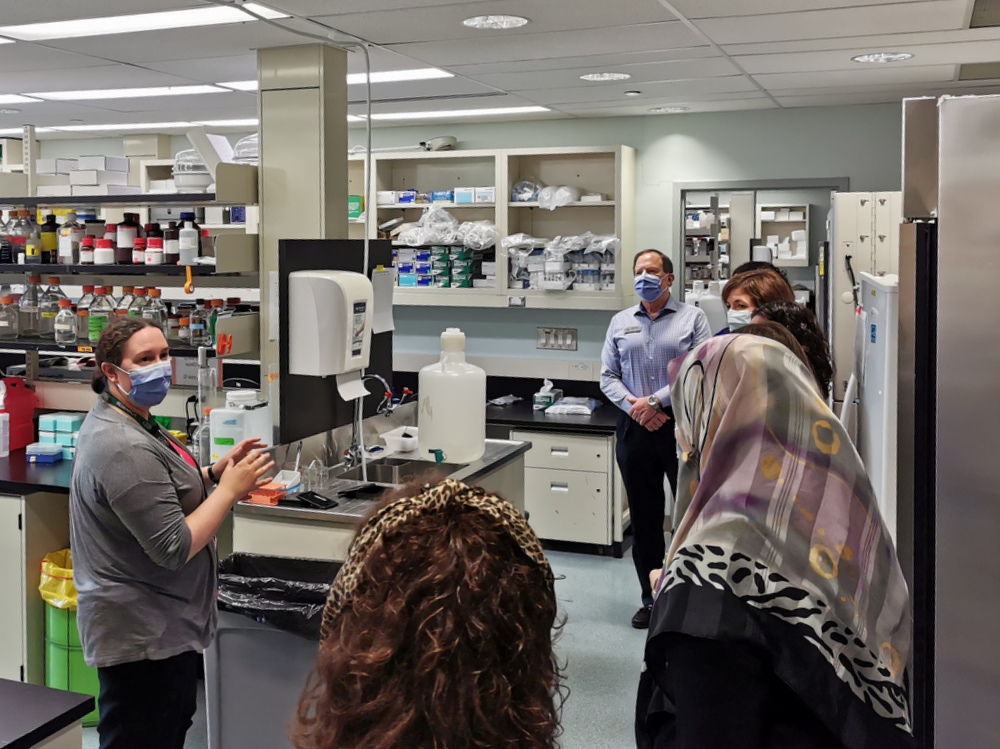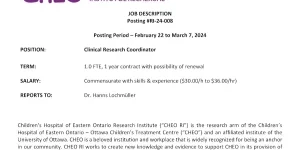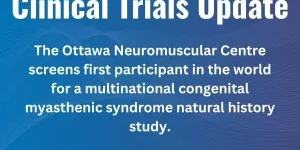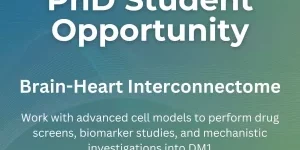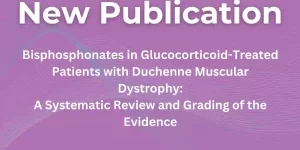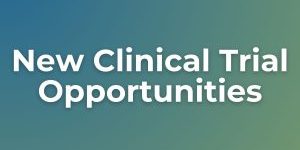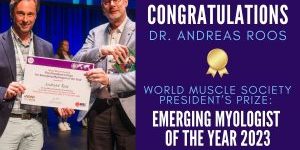Lochmüller Lab hosts information session on clinical research for FSHD
On Saturday June 11th we were delighted to welcome individuals and families living with facioscapulohumeral muscular dystrophy (FSHD) and members of the FSHD Society to the CHEO Research Institute for an information session on clinical research into this genetic neuromuscular condition.
In recent years, advances in the understanding of the molecular mechanisms behind FSHD have resulted in a number of new treatment strategies coming into clinical trial for the first time. In order to establish whether a treatment is having an effect, it is also crucial to see how people with FSHD progress over time without treatment, and for this, the "natural history" of the disease also needs to be studied in depth. To work out how many people might benefit from any new therapies, we need to gain a more detailed insight into how many individuals with different forms of FSHD live in Canada, and for this aspect, "registries" of individuals with the condition such as that available through the Canadian Neuromuscular Disease Registry (CNDR) can be highly valuable.
The information session was hosted by Prof. Hanns Lochmüller, who is principal investigator for several FSHD trials for adult participants that are run out of the Ottawa Neuromuscular Centre. Hanns summarised the completed and upcoming trials that are happening at the Ottawa centre and explained the scientific background of the research. A Phase 2 trial of losmapimod, a p38α/β MAPK inhibitor produced by the company Fulcrum Therapeutics, was completed in 2021, with 5 patients enrolled in Ottawa, and a Phase 3 trial of the same drug will soon be recruiting. Several other novel drug trials may also come to Ottawa in the near future. A new natural history study, the MOVE+ study (Motor Outcomes to Validate Evaluations in FSHD), which is already active across multiple sites in the US, will soon be available in Ottawa and will provide detailed information on a range of physical tests or "outcome measures", as well as MRI and muscle biopsies, that can be tested in individuals with FSHD to gain more information on the variability of these measures and how they change over time in individuals who are not taking an experimental medicine.
An overview of the functional outcome measures that are assessed in clinical trials was provided by Isabelle Fisette-Paulhus, research physiotherapist for the Lochmüller team. These tests are performed at different timepoints in the trial to assess how an individual's performance changes over time and include items such as the "Reachable Workspace" test, where the person is videoed while performing different arm movements to show their functional reach both with and without an extra weight burden. Tests like this have been shown to change over time, which is important in a trial setting, and functional reach is also something that individuals affected by the condition find relevant to their daily lives.
Clinical trial coordinator Jessica MacGregor gave an overview of what it's like to participate in a trial - the need for participants to give informed consent and understand the purpose of the research and that they can withdraw at any time, the frequency and intensity of trial visits and the differences in number of visits and tests performed in different trials.
Advocacy groups like the FSHD Society and Muscular Dystrophy Canada play a vital role in rare muscle conditions like FSHD - bringing individuals together to share experiences, fundraising and advocating for research into the condition, funding research itself, and providing information to families. Mark Stone, CEO of the FSHD Society, gave an overview of the society's international work towards accelerating research, and Carrie Wilkinson described the society's newly launched Ontario Chapter and its ambition to connect Canadian patients with the broader community and to fundraise for dedicated FSHD research in Canada. A number of the families present explained how challenging it can be to connect with others affected by the same condition locally and how valuable such experience-sharing can be.
Following an interactive question-and-answer session where families had the opportunity to ask all their burning questions about what it's like to be a participant in clinical research, the day finished with a tour of the Lochmüller research lab from lab research lead Dr Sally Spendiff, who described our scientific research into a number of inherited neuromuscular conditions. Basic research in cell and animal models to help understand disease mechanisms and find potential treatments is a necessary precursor to the research in human participants that was the main focus of the information session, and participants were fascinated to see the equipment that is used by the lab researchers to find the answers to these questions.
The day was a great opportunity for detailed information exchange and in-depth questions and the Lochmüller team would like to thank all participants for their engagement and enthusiasm and for taking the time to come to CHEO in person for this excellent event. We hope to repeat it in future, not only for FSHD but also for other neuromuscular conditions in children and adults for which there are clinical research opportunities coming along.
If you are someone affected by a muscle condition living locally and you would be interested in hearing more about clinical research opportunities in Ottawa, please get in touch!

